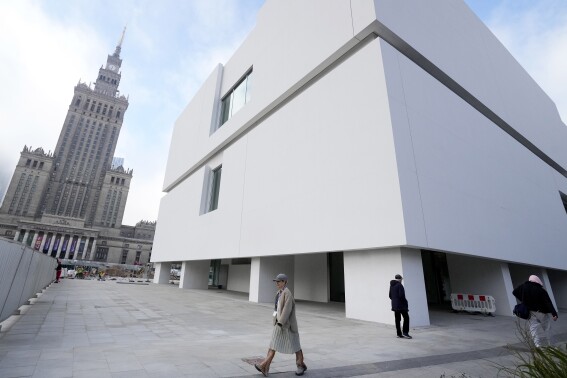Your support helps us to tell the story
Support NowThis election is still a dead heat, according to most polls. In a fight with such wafer-thin margins, we need reporters on the ground talking to the people Trump and Harris are courting. Your support allows us to keep sending journalists to the story.
The Independent is trusted by 27 million Americans from across the entire political spectrum every month. Unlike many other quality news outlets, we choose not to lock you out of our reporting and analysis with paywalls. But quality journalism must still be paid for.
Help us keep bring these critical stories to light. Your support makes all the difference.
The bright summer nights are long gone, and you may have begun to feel lethargic in the evenings as we approach the colder months.
But what causes these sluggish feelings and how can we properly recharge?
We have spoken to some wellbeing experts who have explained why we feel this way, and have offered some advice about how to embrace the evening darkness…
Why do people feel more tired in the evenings during the colder months?
The drop in temperature and early sunsets are often accompanied by a noticeable shift in mood.
“The reduction in daylight and sunshine can lower serotonin levels, a brain chemical responsible for regulating our sense of wellbeing,” explains Helen Wells, psychotherapist and clinical director at The Dawn Rehab Thailand. “Less sunlight can disrupt our circadian rhythm, the body’s internal clock that regulates sleep-wake cycles and other physiological processes.
“When this rhythm is disturbed, it can lead to sleep disturbances, fatigue, and irritability.”
With less exposure to natural daylight, our bodies produce more melatonin, a hormone that promotes sleep.
“This can make us feel more lethargic, especially during the evenings,” explains Holly Beedon, clinical lead at Living Well UK. “Reduced daylight hours can lead to a condition known as Seasonal Affective Disorder (SAD), which is a form of depression triggered by the change in seasons.
“Even if someone doesn’t experience SAD, they might feel a dip in their mood and motivation due to the lack of sunlight, which plays a key role in maintaining our mental wellbeing.”
How can we reframe our thinking around the colder months and embrace the darker evenings?
“It can be helpful to shift our mindset about the colder months by focusing on what they offer rather than what they take away,” suggests Beedon. “For example, think of winter as a time for rest, reflection, and cosying up with loved ones.
“Rather than letting our minds focus on the early sunsets, try to embrace them as opportunities to wind down earlier, practice self-care, or enjoy indoor activities like reading, cooking, or any of your hobbies.”
So, how can we recharge after work in the colder evenings?
Embrace the cosiness
Recharging after a long work day during the darker months requires intentionality.
“First, prioritise rest by creating a calming environment at home,” says Beedon. “This could include dimming the lights, lighting candles, or using soft blankets – anything that signals comfort and relaxation.”
Declutter
“Why not try a declutter session to stimulate a wave of motivation,” suggests Lisa Gunn, mental health prevention lead and senior clinician at Nuffield Health. “Believe it or not, there is some truth in ‘less mess, less stress’ and being organised can help you successfully start new habits and maintain your motivation.
“When your environment is cluttered, the chaos constantly competes for your attention and restricts your ability to mentally focus and process information, so turn a spring clean into an autumn declutter.”
Move your body
“To boost your energy levels, try to stay active, even if it’s indoors,” advises Wells. “Incorporate regular exercise into your routine – activities like yoga or home workouts can be effective.”
Engage in calming activities
“Engage in activities that promote restfulness, like reading, light stretching, or listening to calming music,” suggests Beedon.
Try mindfulness
“Practicing mindfulness exercises, such as short daily meditation sessions, can also help manage stress and enhance overall energy,” says Wells.
Feed and hydrate yourself
It’s also crucial to be mindful of nutrition and hydration, as the body can feel more fatigued when lacking in essential nutrients.
“Take advantage of the vegetables that are in season during the cooler months and turn them into an autumnal delight,” suggests Gunn. “Bring out the slow cooker and experiment with the different veggies that are in season.”
Stick to a consistent sleep schedule
“As adults this is often something we forget, but training ourselves to wake and go to sleep the same time can be helpful,” says Gunn. “Good quality sleep allows your body to recover and recharge itself to help you feel refreshed for the next day.
“Try to avoid strenuous physical activity before bed and going to sleep on a full stomach or hungry as these can all interrupt sleep.”
Disclaimer: The copyright of this article belongs to the original author. Reposting this article is solely for the purpose of information dissemination and does not constitute any investment advice. If there is any infringement, please contact us immediately. We will make corrections or deletions as necessary. Thank you.



